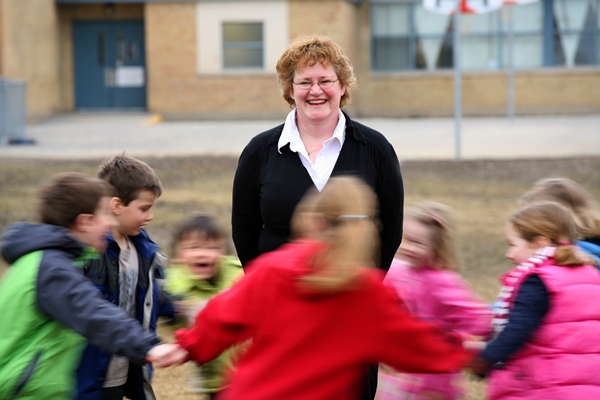Child development expert 'concerned' by UNICEF report
April 14, 2016
Share
Queen’s University professor Wendy Craig was a research advisor for the new UNICEF Report Card 13: Fairness for Children. The report card reveals Canada ranks 26 out of 35 nations when compared across four key domains of child well-being: income, education, health and life satisfaction.
The report measured bottom-end inequality of children compared to their peers in the middle. Despite Canada’s relative economic strength, the dividends have not been spread equitably to children, with little progress to close disparities in their well-being over the past decade.

“The findings of this report card are concerning and we need to do much more to support healthy development for our youth,” says Dr. Craig. “We are failing as a caring society in supporting some of our most vulnerable youth and, as a consequence, they are falling further behind. The children who are at the bottom of income inequity tend to have more difficult lives including poorer health, less academic success, more risk behaviours like bullying, and more limited expectations and aspirations to be all they can.”
According to the report card, Canada has one of the highest proportions of children reporting very low life satisfaction, which is associated with poor mental health and more risky behaviours. One quarter of Canadian children report daily symptoms of poor health. The report card also revealed many aspects of child well-being have remained the same over time with little to no progress being made in the last decade.
“The good news is that some of the proposed government initiatives will begin to address some of these gaps. We need to show that Canada cares about its children by investing in them,” says Dr. Craig.
Some of the key findings in Report Card 13: Fairness for Children include:
- The widest gaps between those at the middle and those at the bottom were in the levels of income inequality and unhealthy eating.
- Of the 41 most affluent countries, Canada ranks 24th in the level of income inequality. The poorest children in Canada have family incomes 53 per cent lower than the average child.
- Nine per cent of children reported very low life satisfaction, more than the average among rich countries.
- Canada ranks 14th out of 37 countries in the level of education inequality.
- Canada ranks 25th out of 35 countries in the level of life satisfaction inequality.
“Through surveys such as the Health Behaviour of School Aged Children and Youth, we can monitor and understand the experiences of young people in Canada and inform the development of policy to ensure their healthy development,” says Dr. Craig, Scientific Co-Director of PREVNet (Promoting Relationships and Eliminating Violence Network).
To read the full report, visit the website.